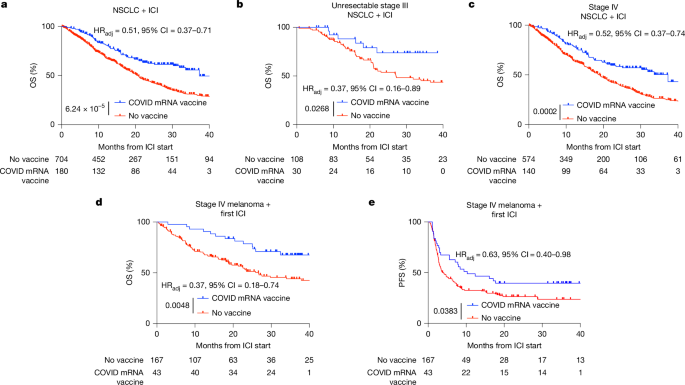Amid uncertainty at the federal level, the Globe spoke with experts to guide readers on which vaccines are available, what doctors are recommending, and where to find reliable sources of information.
Though the CDC’s Advisory Committee on Immunization Practices has yet to officially weigh in on the COVID-19 vaccine, Kennedy announced on X in May that the CDC would no longer recommend the shots for healthy children or healthy pregnant women.
While the CDC immunization schedule still recommends COVID-19 vaccinations for adults, it updated its website to state that parents of children ages 6 months to 17 years “should discuss the benefits of vaccination with a healthcare provider.” Under the pregnancy category, the CDC lists “no guidance/not applicable” for COVID-19 vaccines.
The Food and Drug Administration is also weighing whether to revoke its authorization of Pfizer’s vaccine for healthy children under age 5. If the FDA follows through, healthy children in this age range may be left without an officially authorized option, since Moderna’s vaccine is approved only for children with underlying health conditions, and Novavax’s vaccine is not available to those under 12.
The American Academy of Pediatrics continues to recommend that all children starting at six months receive the COVID vaccine, even if they’re healthy, Anders Pring said. According to CDC data, 41 percent of children ages 6 months to 17 years hospitalized with COVID-19 from October 2022 to April 2024 did not have a known underlying condition.
Anders Pring recommends every child starting at age six months receive the “primary series,” the two initial doses. For older children, Anders Pring recommends getting an annual booster, just like the flu shot.
Naima Joseph, a maternal fetal medicine specialist at Boston Medical Center, recommends pregnant patients also receive the COVID-19 vaccine.
Insurance companies are mandated to cover ACIP’s recommendations. But since the panel’s final recommendation has not been released, insurance companies have promised to accept the guidance from medical societies, Joseph said.
America’s Health Insurance Plans, a national trade association representing the health insurance industry, stated in June that it is “committed to ongoing coverage of vaccines to ensure access and affordability for this respiratory virus season.”
“We are hopeful that given AHIP has stated an intent to continue coverage of vaccines, it won’t be a problem,” Joseph said. “We will continue to partner with clinicians, pharmacists, community health workers to ensure equitable distribution of vaccines.”
The CDC still recommends the flu vaccine for everyone six months and older. But, in late June, Kennedy approved the CDC advisory committee’s recommendation to avoid thimerosal in flu vaccines.
Thimerosal, a mercury-based chemical compound, is used like a preservative in multi-dose vials. The ingredient has long been pushed by the anti-vaccine movement as being connected to autism, though that data was debunked.
The move should not affect the supply of flu vaccines, doctors said, as thimerosal is used in less than 5 percent of U.S. flu vaccinations. Manufacturers told the American Academy of Pediatrics and The Globe that the decision should not impact their capacity to provide vaccines.
Boston Medical Center is “proactive in looking at supply chains throughout the year to ensure that we have sufficient stock,” said Cassandra Pierre, an infectious disease physician there.
Respiratory syncytial virus, which causes infections of the lungs and respiratory tract, primarily infects young children under 2 years old. It also impacts the elderly, especially those with weakened immune systems and chronic lung conditions. RSV infections are usually mild in healthy people.
As of Aug. 4, the CDC recommends RSV vaccines for all adults ages 75 and older, as well as adults ages 50 to 74 who are at increased risk for severe RSV.
In June, the federal panel approved a recommendation for clesrovimab, an antibody that prevents RSV, for infants under 8 months. There is no preferential recommendation between this antibody and another called nirsevimab.
For pregnant women, the CDC recommends a single dose of the maternal RSV vaccine — in particular, Pfizer’s Abrysvo — during weeks 32 through 36 of pregnancy. The RSV vaccine given to mothers allows antibodies to be passed to the baby before birth.
Doctors agree that RSV vaccines are recommended for these populations.
Pneumonia vaccines are available throughout the year, Pierre said. The CDC recommends pneumococcal vaccination for children younger than 5 and adults 50 and older.
It also recommends it for individuals who have underlying health conditions that put them at high risk for severe disease. That includes people with HIV, asthma or significant pulmonary disease, or diabetes, according to Pierre.
Where can I find reliable information about vaccines?
Pierre said guidance from professional organizations, like the American Academy of Pediatrics and the American Medical Association, are resources to look to. She added state and local boards for public health are “wonderful unsung gems.”
The Vaccine Integrity Project at the University of Minnesota announced in July that it is teaming up with medical professional organizations, including the American Academy of Pediatrics, American College of Obstetricians and Gynecologists, Infectious Diseases Society of America, and American Academy of Family Physicians “to support the development of evidence-based guidance for flu, COVID and RSV immunization,” according to a press release.
While such resources exist, doctors ultimately urged patients to consult with their own clinicians.
“From a public health perspective, we as pediatricians love to talk with our patients and work with them,” Anders Pring said.
Jessica Ma can be reached at jessica.ma@globe.com.

